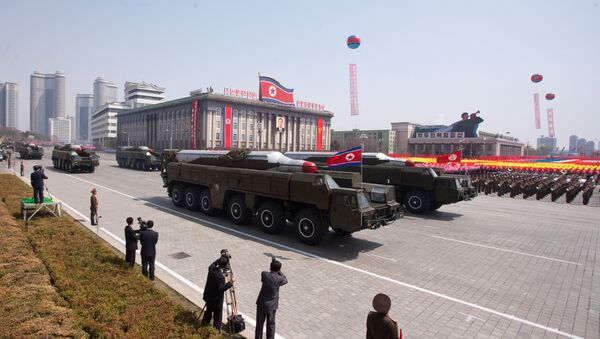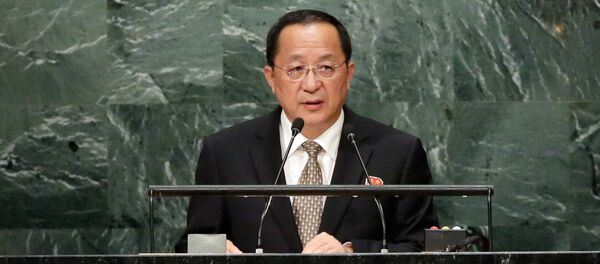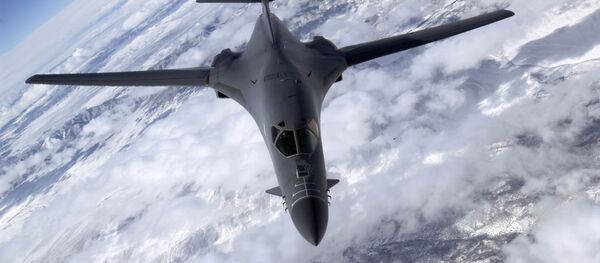North Korean Foreign Minister Ri Yong Ho's speech before the United Nations General Assembly on Friday may have been such an occasion.
During his speech, Ri stated bluntly that Pyongyang would continue to build up its nuclear arsenal to deter against threats, including US nuclear weapons and conventional US and South Korean military forces, which regularly engage in 'provocative' military exercises along North Korea's borders.
"The acquisition of a nuclear arsenal is the policy of our state," the diplomat bluntly admitted. "As long as a nuclear-armed state exists that has hostile relations with our country, our national security and peace on the Korean peninsula can be defended only with reliable nuclear deterrence," Ri added.
At the same time, the diplomat stressed that his country "is doing everything to prevent armed conflict and its escalation, taking countermeasures for self-defense when met with aggressive US exercises by the US and South Korea."
"Our decision to strengthen our nuclear arsenal is a justified measure of self-defense to protect our nation from the constant nuclear threat posed by the United States," Ri said.
Finally, justifying North Korea's intensification of missile and nuclear testing in recent weeks and months, the official suggested that the "successful test of a nuclear warhead carried out recently is part of the practical countermeasures against threats and sanctions – to the hostile sanctions of the United States."
North Korean officials and the country's state media are well-known for making loud, aggressive statements. For instance, in response to recent reports that South Korea was creating a special military unit capable of decapitating the North Korean leadership, Pyongyang announced that it might just respond by loading a hydrogen bomb into an artillery piece and dropping it on Seoul.
Ultimately, Moscow's only promising avenue of approach to resolving tensions on the Korean peninsula is the resumption of the six-party talks on North Korea's denuclearization. However, for this to occur, Moscow and Beijing must be able to convince their American, Japanese and South Korean partners that Pyongyang's saber-rattling stems from genuine fears of the conventional and nuclear threats posed by the US and its allies.




